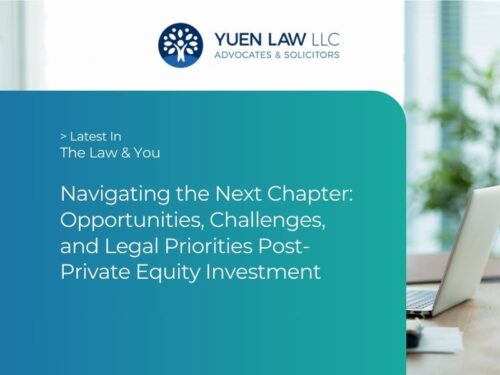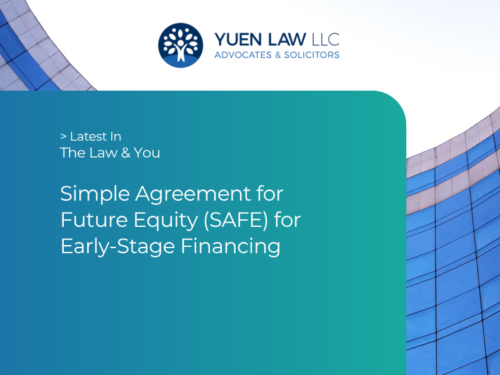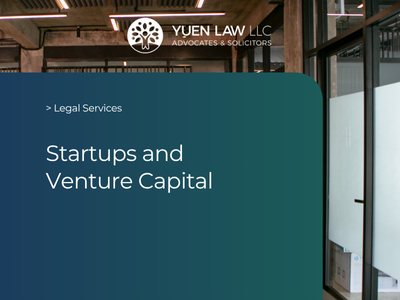Why is Fundraising Important?
Every business needs capital to develop, grow, and expand. Whether it is a start-up or a relatively established company, fresh funding will allow the business to scale up its operations, hire more employees, purchase tools and resources or to invest in research and development.
Internal funding may not always be a viable option, especially if the business has not begun to bring in adequate or stable profits. As such, business owners often turn to external funding from interested investors.
Generally, there are two main options when it comes to raising funds externally – equity financing and debt financing. Both options fulfill the purpose of acquiring money, but there are some fundamental differences between the two options. Both the investor and investee company should be aware of the various considerations in a fund raising transaction.
Equity Financing Through Share Issuance
Equity investments relate to buying shares or stakes in a company. The Investor can invest in a company by subscribing for shares in the company. As a shareholder, the investor may receive a cut of the profits that the company declares (i.e. receive dividends). The return to investors depends on the performance of the company and the profits it makes.
There are two common types of shares companies can issue – ordinary shares and preference shares.
Typically, the main difference between the ordinary shares and preference shares has to do with the voting rights – ordinary shareholders have voting power while preference shareholders typically do not have the right to vote. Ordinary shareholders are able to attend general meetings of the shareholders, and usually the amount of shares they hold determines how many votes they can cast.
Preference shares are a special class of shares and may contain special benefits. For instance, when the company declares dividends, preference shareholders may be paid before the ordinary shareholders. In the event of liquidation (i.e. the company shuts down), preference shareholders may enjoy priority over ordinary shares holders as well.
Essentially, business owners will need to decide on the amount of control and power they are willing to grant to their stakeholders, before deciding what sort of shares to offer.
Debt Financing Through Issuance of Convertible Bonds
The second type of investment option is called debt financing. Companies may choose to issue bonds to their investors and such bonds often have a fixed maturity date (e.g. five years; ten years).
Bonds are instruments of debt and function like loans – a company borrows money from an investor for a specific period of time; with a guarantee that the investor will eventually receive the principal sum plus interest. This sets it apart from equity investments, as bondholders can be assured that they will receive their money plus interest once the bond matures. The return on equity investments however, rely on the profits a company makes, before dividends can be declared.
As opposed to shareholders, bondholders do not own a share of the company and so, do not receive a cut of any profits made. They are simply creditors, having ‘lent’ money to the investee company.
Like most preference shareholders, bond investors also do not have the right to vote on company matters. They are unable to interfere with the operations of the company unless otherwise agreed contractually, thus giving business owners more control and autonomy over the running of the business.
It is also possible for bonds to be convertible. This means that the investor has the option has of converting the bond into money or into shares, when the bond matures. This means that the investor can request for his/her principal sum and interest back, or choose to convert it into ordinary shares of the company, and become a shareholder. The latter option may be desirable especially if the company has been successful in earning profits and increasing the valuation of its shares. If the business has been doing well, the investor may choose to convert the bond into shares since the company’s shares are deemed valuable and the likelihood of receiving dividends is higher.
Debt investments may be ideal for investors who do not wish to have control over the running of a company, and would simply like a guaranteed return.
For assistance on Fundraising, please contact us to make an appointment.






